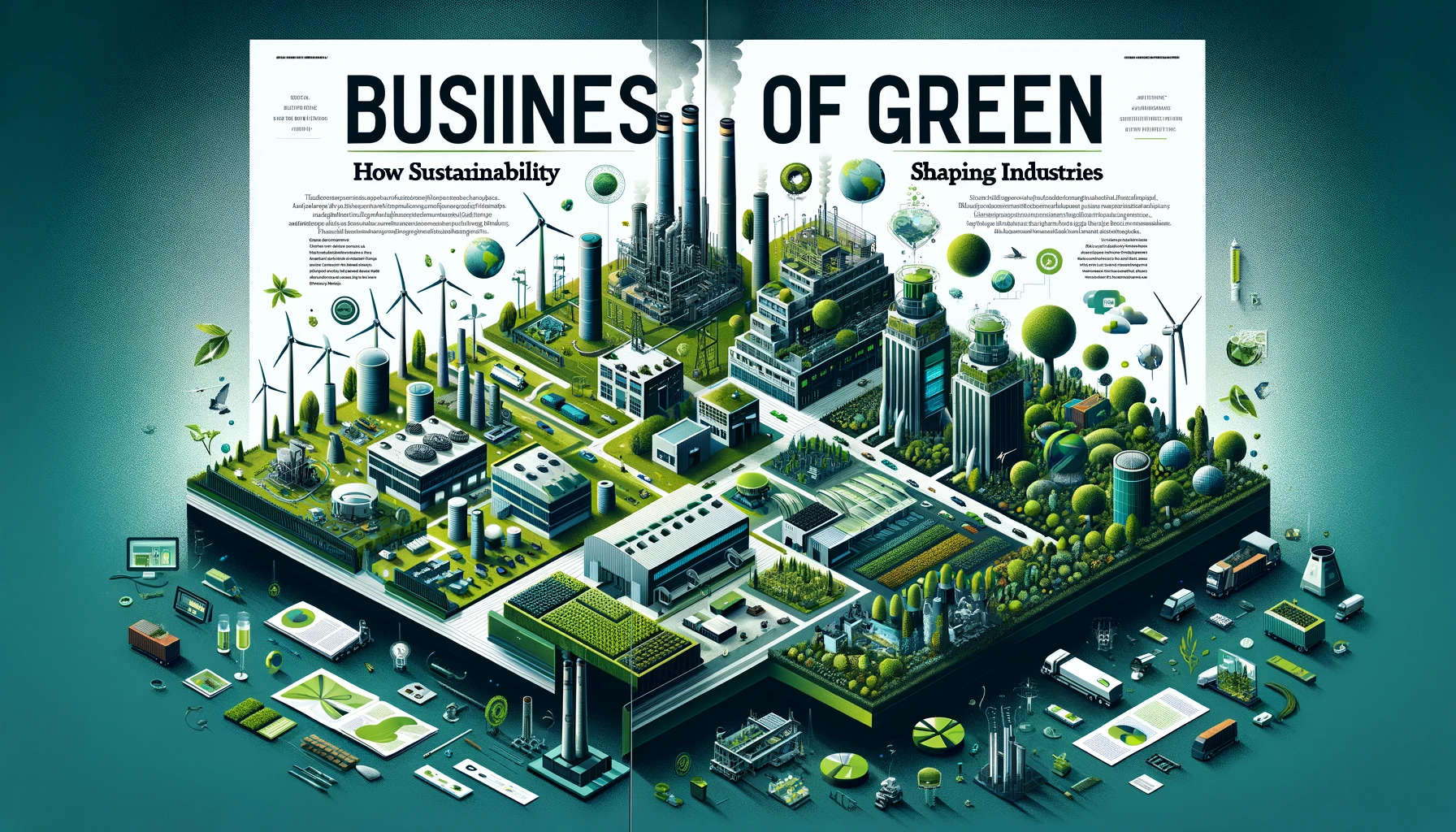Sustainability is transforming industries, reshaping strategies, and driving innovation. As environmental awareness rises, businesses across sectors are adapting to sustainable models, benefiting both the planet and their bottom line.
Key Industry Shifts
- Sustainable Agriculture: This sector is evolving towards practices that are environmentally friendly, economically viable, and socially just. Innovations in organic and regenerative farming are rejuvenating soil and enhancing biodiversity. These sustainable methods are attracting significant funding and employment, signaling a strong industry shift towards greener agriculture.
- Eco-friendly Packaging: The move towards sustainable packaging, including compostable materials, is gaining momentum. This trend is driven by consumer demand and environmental necessity, with many organizations investing heavily in sustainable packaging solutions.
- Manufacturing: Companies are focusing on reducing waste, increasing energy efficiency, and using renewable resources. For example, Unilever is working towards a deforestation-free supply chain by 2023, showcasing the industry’s commitment to sustainability.
- Retail Apparel and Fashion: The fashion industry is embracing sustainable practices, such as circular fashion, to mitigate the environmental impact of fast fashion. Brands like Patagonia and Stella McCartney are leading this shift by promoting clothing recycling and using eco-friendly materials.
- Construction: The construction sector is adopting green building practices, integrating energy-efficient technologies, and sustainable materials into projects, reducing the industry’s carbon emissions.
- Energy: A significant transformation is occurring as the sector moves from fossil fuels to renewable sources. Investments in wind, solar, and hydroelectric power are exemplifying this trend.
- Transportation: The adoption of electric vehicles and enhanced fuel efficiency are key trends in this industry. Tesla’s success in the EV market is a prime example of sustainability driving change.
- Information Technology: The IT industry is reducing e-waste and energy consumption through initiatives like server virtualization and cloud computing. Companies like Google and Microsoft are aiming to become carbon-neutral or negative, showing the industry’s commitment to sustainability.
Sustainability Trends and Business Transformation
- Sustainability Disclosure Requirements: Increasingly stringent reporting requirements related to sustainability are emerging, including mandatory reporting of sustainability metrics and disclosure of climate-related risks and opportunities.
- Collaborating with Suppliers: Businesses are collaborating with suppliers to share best practices and drive positive change throughout the supply chain, leading to more sustainable sourcing and reduced waste.
- Innovative Business Models: Companies are incorporating models that promote sustainable growth, such as the circular economy approach and exploring new revenue streams based on sustainable products or services.
- Energy Efficiency: Investing in energy-efficient technologies and promoting behavior change among employees are vital for businesses to reduce their energy consumption and associated carbon emissions.
Sustainability Reporting
Future sustainability reporting is expected to include a comprehensive assessment of carbon emissions across the entire supply chain and the use of advanced technology for accurate sustainability data.
Consistency with SDGs
This article aligns with several Sustainable Development Goals (SDGs):
- SDG 12 (Responsible Consumption and Production): Promoting efficient resource use and sustainable business practices.
- SDG 13 (Climate Action): Addressing climate change through energy-efficient and low-carbon practices.
- SDG 7 (Affordable and Clean Energy): Focusing on renewable energy in the energy sector.
- SDG 9 (Industry, Innovation, and Infrastructure): Emphasizing innovation and sustainable infrastructure in industry transformation.
- SDG 15 (Life on Land): Highlighting sustainable agricultural practices.
Conclusion
Sustainability is not just a trend, but a crucial element in the future of business. Companies across various sectors are embracing sustainable practices, not only to benefit the environment but also to ensure economic viability and competitive advantage in the market. This shift towards sustainability is a promising sign of a more responsible and sustainable global economy.


